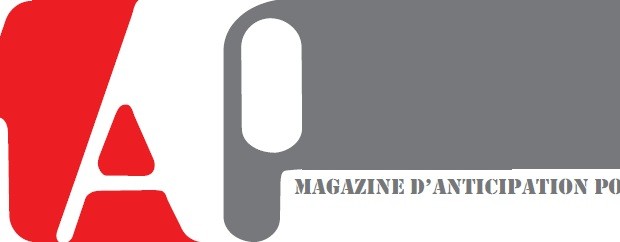This is an article from MAP (Magaine d’anticipation politique) written by Mihai Nadin in March 2012 – MAP is a four-monthly publication by LEAP.
People took to the streets. Some heavy players in the digital economy flexed their muscle. The press covered the event. Even the United Nations directed its attention to the issue. Frank LaRue, Special Rapporteur, submitted a report on the “promotion and protection of the right to freedom of opinion and expression.” Recently, ACTA (the AntiCounterfeiting Trade Agreement) was stopped in its tracks because Germany, alerted by public demonstrations, changed its mind, after it had already endorsed the dubious document (like the 22 other country members of the EU).
This is a story of how economic interests in exploiting innovative technology collide with political goals. Not surprisingly, the USA leads the movement to protect the interests of business. Incompetent politicians, bought with the money of wealthy lobbies, broadcast slogans from the past: Intellectual property rights must be protected!
In reality, this is the last thing on the mind of the American government. The profit motive alone drives the effort to control the Internet. And the American courts are imposing fines, and even jail sentences, upon the persons who, in the spirit of a globally networked world, support peerto-peer communication. Politicians and lawyers do not understand that selling a record or CD is fundamentally different from digital interactions that produce value in a new way. Neither do they understand that digital interactions affect the many opportunities associated with the networked world. Viral dissemination makes a song offered for free download the best argument for attending the artist’s concert. Artists understood this new development, and know its real advantages.
In Europe, sometimes under pressure from the USA, France and the UK came up with rules for policing copyright. No effort was made to understand that to copy in the digital age is quite different from copying in the age of industrial capitalism. Let’s face it: counterfeiting sneakers or designer handbags is different from “copying” what is on the Web. In addition, no effort has been made to understand that rights—political rights in the first place—cannot be forever suppressed in order to please those who want to control the Internet-based economy for their own benefit. Copying and disseminating images critical to national security is a political statement. But those who oppose this form of reporting pursue the authors for economic crimes. As imperfect as WikiLeaks was, it was a political action concern, not another eBay auction.
The situation to which I refer makes the need for political anticipation of the freedom associated with the Internet more urgent than ever. For example: France’s HADOPI (Haute Authorité pour la Diffusion des Oeuvres et de la Protection des Droits sur Internet) legislation applies a “three strikes and you’re out” model. A person can have political rights—such as access to the Internet— taken away for deeds misinterpreted, or misconstrued, as violations of commerce laws. European Union regulations restrict diffusion of messages through the Internet. In Switzerland, the Logistics File Sharing Monitor legitimizes address tracing. This is something that the West associates with China, not with democratic countries. Internet service providers are shying away from websites of human rights defenders, dissidents, and whistleblowers because distributed denial-of-service attacks on the servers makes the operation of providing services too costly.
All this is a cat-and-mouse game between the people and those who want to deny them liberties characteristic of a world where “Information wants to be free” (as the slogan, dating back to early Internet use, goes). Thus, for Wikipedia to shut down for a day in protest to possible legislation to control the Internet was spectacular, but disingenuous. The Wikipedia hierarchy tacitly allows those with money to hire writers to produce entries about them in a favorable light. And Wikipedia allows its volunteers (are they really volunteers?) to censor, in a fascistic manner, the “wisdom of the crowds.” Google, which in these days is introducing new policies, will link accounts, no matter whether the user so wishes or not. Search engines, social networks, online media and businesses data-mine information about Internet users for their own economic gain. Yet no one has come with a political statement that data-mining actually robs individuals of their property (and privacy) for the benefit of the commercial democracy of consumption.
La Quadrature du Net correctly pointed out that the political class and the new politics of the net are representing irreconcilable views of the rights of individuals. Instead of measuring how many minutes went by before the press announced the death of Whitney Houston, (some Tweeter did that first), we’d better focus on the anticipation of the new politics advanced by Internet users. The Internet natives (i.e., the first generation to grow up “on the net”) do not give a damn that Twitter messages are faster than the press. They will take over political power on account of their competence, a competence so painfully missing today from the attempts to regulate a pragmatic human condition that differs from that of the past.
Based on worldwide traffic data—currently almost 600 exabytes—and on patterns of data use (how much for e-commerce, how much for e-learning, how much for e-entertainment, how much for private e-communication, how much for pornography, etc.), we can predict a number of patterns:
– the increase of the number of proprietary networks (such as iTunes) keeping a tight record of the users’ profile (company monopoly)
– the increase of dedicated networks (e.g., for cybersecurity purposes, for distributed medical diagnosis)
– the increase of the number of dedicated social media networks that will effectively compete with the “all-in-one” models (such as Facebook and Twitter)
– a more competitive environment in search engine-based networks (Google will cease to be the superpower).
While governments will continue to try to regulate the Internet, they will always remain behind the curve. With the native generation, politics will definitely extend into the Internet, no longer as a propaganda medium and funding instrument, but rather in engaging an empowered electorate in political decision-making.
That decision making will be less depth based and more opportunistic goes without saying.


 LEAP2040 Toutes les informations et archives Europe2040
LEAP2040 Toutes les informations et archives Europe2040



